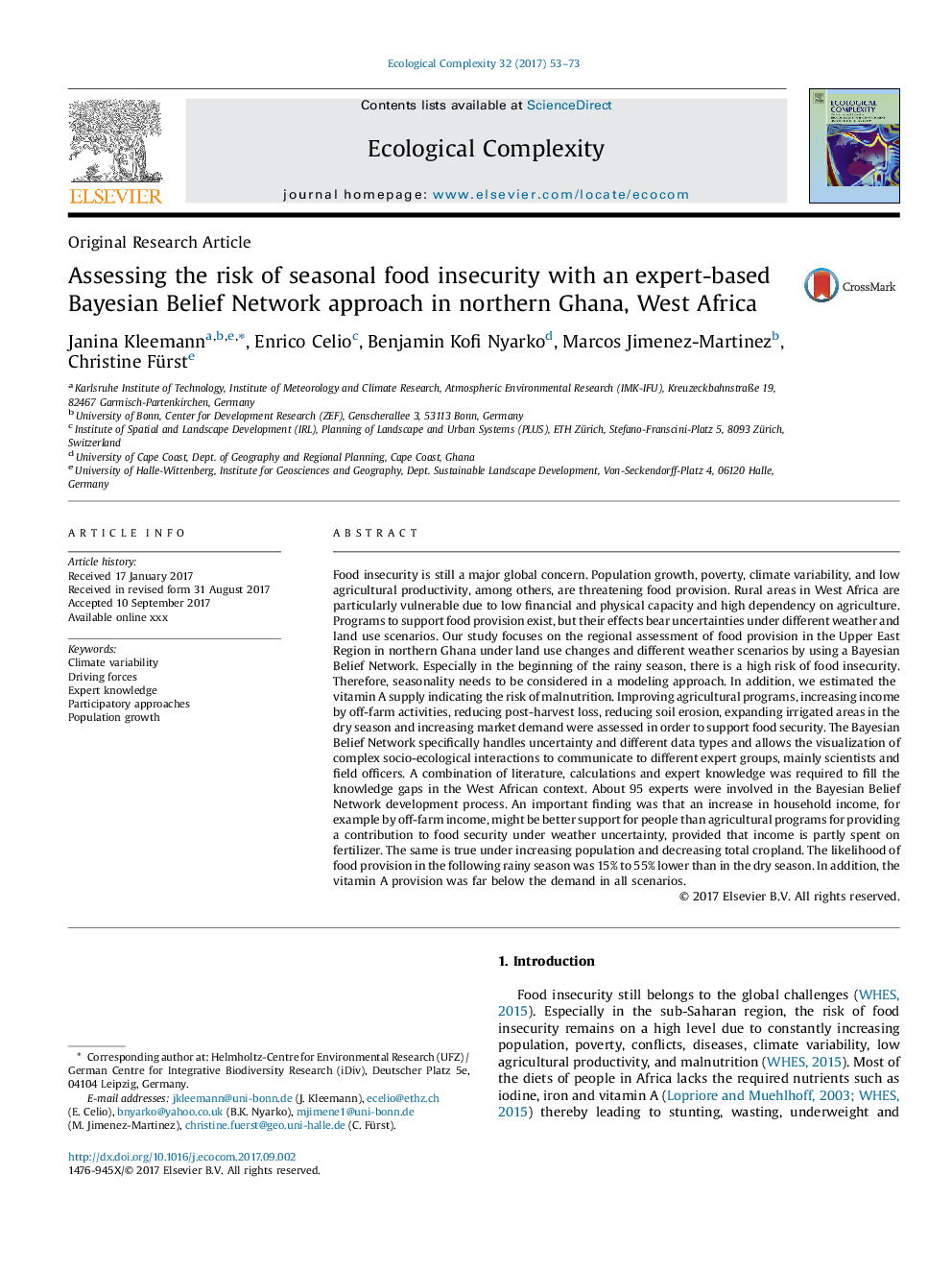ترجمه فارسی عنوان مقاله
ارزیابی خطر ناامنی غذایی فصلی با یک روش مبتنی بر متخصص شبکه اعتقاد بیسین در شمال غنا، غرب آفریقا
عنوان انگلیسی
Assessing the risk of seasonal food insecurity with an expert-based Bayesian Belief Network approach in northern Ghana, West Africa
| کد مقاله | سال انتشار | تعداد صفحات مقاله انگلیسی |
|---|---|---|
| 134954 | 2017 | 21 صفحه PDF |
منبع

Publisher : Elsevier - Science Direct (الزویر - ساینس دایرکت)
Journal : Ecological Complexity, Volume 32, Part A, December 2017, Pages 53-73
ترجمه کلمات کلیدی
تغییرات اقلیمی، نیروهای رانندگی، دانش کارشناس، رویکردهای مشارکتی، رشد جمعیت،
کلمات کلیدی انگلیسی
Climate variability; Driving forces; Expert knowledge; Participatory approaches; Population growth;

